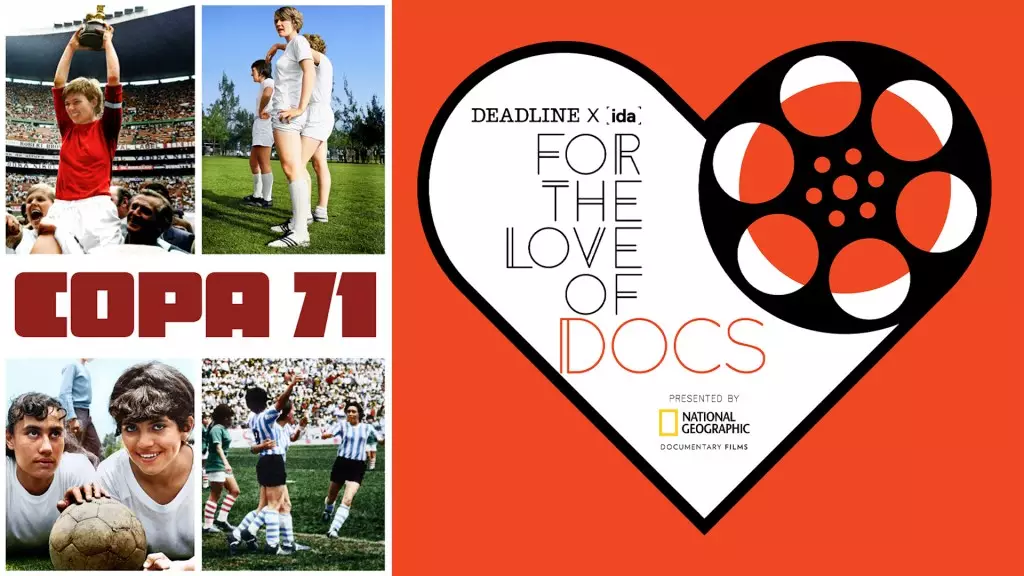In the landscape of sports history, few events strike as powerful a chord as the unofficial Women’s World Cup held in 1971 at Azteca Stadium in Mexico City. This remarkable tournament, which brought together teams from nations such as Mexico, England, Argentina, France, Italy, and Denmark, attracted a staggering audience of over 110,000 enthusiastic spectators. Although it is often overshadowed by subsequent official tournaments, the significance of Copa 71 looms large—both as a celebration of women’s soccer and a stark reminder of the systemic neglect and sexism that has pervaded the sport. An insightful documentary titled *Copa 71*, directed by Rachel Ramsay and James Erskine, illuminates this incredible chapter in women’s sports history.
The inception of *Copa 71* traces its roots to a casual conversation between the film’s producer, Victoria Gregory, and her husband, who stumbled upon a radio piece that featured a former player from the England team. Intrigued by the untold stories surrounding the tournament, Gregory and her team embarked on a journey to unearth archival footage and reconnect with surviving players whose contributions had been overlooked for decades. This was no simple task; many players were hesitant to share their experiences, having been subjected to ridicule and sexualization by the media during their careers. The filmmakers understood the necessity of building trust with these women, many of whom had not even disclosed their participation in the tournament to their children.
The players’ reluctance to participate is rooted in a history of mistreatment by the soccer establishment and the media. During the tournament, they were frequently trivialized, as their talents were overshadowed by attempts to sensationalize their appearances. Whereas the male-led FIFA organization did not recognize women’s soccer as a legitimate sport until 1991, Copa 71 served as a poignant reminder of the barriers women faced long before this formal acknowledgment. The subsequent events that transpired in 2023, highlighted by a scandal involving Luis Rubiales from the Royal Spanish Football Federation, further emphasize that the issues of power dynamics, disrespect, and media exploitation are far from resolved. This cyclical nature of gender disparity in sports compels a closer examination of the unresolved tensions between men and women in competition.
In *Copa 71*, the filmmakers weave together narratives of empowerment and struggle that echo current conversations surrounding women’s sports. Ramsay articulates that the thematic undercurrents of the film include power, financial independence, and self-expression—topics that remain fiercely relevant. The comparison between the players’ experiences from 1971 and today’s athletes illustrates a disquieting continuity; issues such as pay disparity, media scrutiny, and the mistreatment of female athletes persist despite decades of advocacy for change.
Moreover, players from the Mexican team famously went on strike to demand fair compensation for their efforts, emphasizing that the quest for recognition and respect transcends monetary considerations. The filmmakers argue that the economic aspects are secondary to these more significant issues: control, abuse of power, and the right to dictate one’s narrative in a society that continuously attempts to undermine women’s voices.
Ultimately, the legacy of Copa 71 stands as both a celebration of women’s potential in sports and a stark reminder of the persistent obstacles they face. The documentary serves as a rallying point not only for those interested in soccer but also for advocates of gender equality across all domains. It compels viewers to recognize the progress made while understanding how much further there remains to go. As we reflect on the historical triumphs and tribulations of female athletes, it becomes increasingly clear that their stories must be told—loudly and unapologetically. The ongoing discussions prompted by *Copa 71* reveal that the fight for equality in sports is dynamic, constantly evolving, and critically important in shaping both history and future generations.


Leave a Reply